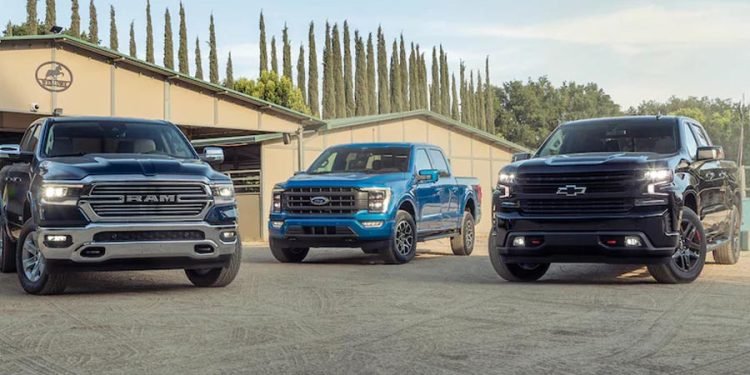The automotive industry has been shaped by many legendary brands, but few are as recognizable as Ford and Chevrolet. These American automakers have been at the forefront of the industry for over a century, creating some of the most beloved vehicles in history. In this article, we will compare and contrast the design, performance, technology, safety, brand loyalty, sales, legacy, and future outlook of these two iconic American automakers. And when you make up your mind about which car to buy, do not forget to check the Chevy or Ford VIN number on specialized sites so as not to get trapped buying a dream car.
Brief History of Ford and Chevy
Founded in 1903 by Henry Ford, Ford quickly became a leader in the American automotive industry, introducing the Model T in 1908, which revolutionized transportation and made cars more affordable for the masses. Chevrolet, on the other hand, was founded in 1911 by Louis Chevrolet and William Durant, quickly becoming a formidable competitor to Ford. Chevy’s introduction of the overhead valve V8 engine in 1955 solidified its reputation as a performance brand.
Importance of These Brands to the American Automotive Industry
Both Ford and Chevy have had a profound impact on the American automotive industry. Ford’s innovations in assembly line production, mass manufacturing, and affordable automobiles transformed the way cars were made and sold. Chevy’s introduction of the small block V8 engine, the Corvette sports car, and the muscle car era of the 1960s and 1970s made it a symbol of American performance and speed.
Design and Styling
Ford and Chevy have distinct design philosophies that set them apart from each other. Ford is known for its sleek, modern, and futuristic designs, while Chevy tends to favor a more classic and traditional aesthetic. In terms of popular models, the Ford Mustang and Chevy Camaro are both iconic American sports cars, but the Mustang is known for its aggressive, muscular exterior and the Camaro is known for its sleek, aerodynamic styling. Similarly, the Ford F-150 and Chevy Silverado are two of the most popular pickup trucks in America, with Ford’s design emphasizing toughness and durability and Chevy’s design emphasizing comfort and style.
Performance
Ford and Chevy are both known for their high-performance vehicles, with a rivalry that has existed for decades. Ford’s Mustang GT and Chevy’s Camaro SS are two of the most popular muscle cars on the market, with both brands consistently pushing the limits of horsepower, torque, and acceleration. In terms of trucks, the Ford F-150 Raptor and Chevy Silverado Trail Boss are both off-road beasts with powerful engines and advanced suspension systems.
Technology and Innovation
Both Ford and Chevy have invested heavily in technology and innovation, introducing advanced features such as infotainment systems, driver assistance technologies, and other innovative features. Ford’s SYNC system and Chevy’s MyLink system are both intuitive and user-friendly, allowing drivers to seamlessly connect their devices to their vehicles. In addition, Ford provides comprehensive ford manuals that help drivers understand the various features and functions of their vehicles. Furthermore, Ford’s Co-Pilot360 and Chevy’s Teen Driver system are both advanced driver assistance technologies that provide added safety and peace of mind for drivers. Overall, these innovative features, along with the accompanying ford manuals, enhance the driving experience for Ford and Chevy drivers alike.
Safety
Safety is a top priority for both Ford and Chevy. The Ford Explorer and Chevy Equinox are both popular SUVs that have received top safety ratings from the National Highway Traffic Safety Administration (NHTSA) and the Insurance Institute for Highway Safety (IIHS). Similarly, the Ford F-150 and Chevy Silverado have both received high safety ratings and offer advanced safety features such as blind spot monitoring, lane departure warning, and rear cross traffic alert.
Sales and Market Share
Ford and Chevy have been in a tight race for market dominance for decades. In recent years, Ford has held a slight lead over Chevy in terms of total sales, with the Ford F-Series being the best-selling vehicle in the United States for over 40 years. Chevy, on the other hand, has been more successful in the passenger car market, with the Chevy Malibu and Chevy Impala being popular choices among consumers.
Factors that affect sales and market share include pricing, marketing strategies, and consumer preferences. Both brands have been known to offer competitive pricing and attractive incentives to entice buyers. Additionally, marketing strategies play a crucial role in brand awareness and influencing consumer choices.
Legacy and Impact
Ford and Chevy have made significant contributions to the American automotive industry. Ford revolutionized the production process with the introduction of the assembly line, making cars more affordable and accessible to the general public. Chevy has made significant contributions to automotive design, including the introduction of the small block V8 engine and the Corvette, an iconic American sports car.
The rivalry between Ford and Chevy has also had a significant impact on the automotive industry. The competition between the two brands has driven innovation and led to the development of new technologies and features. The intense competition has also led to the creation of a loyal fanbase and community, with enthusiasts on both sides fiercely supporting their brand of choice.
Future Outlook
The future looks bright for both Ford and Chevy, as they continue to develop new technologies and features to meet changing consumer needs. Ford has announced its plans to invest heavily in electric and autonomous vehicles, with the introduction of the all-electric Ford F-150 and the Mustang Mach-E. Chevy is also committed to electrification, with the introduction of the Chevy Bolt and plans to release a range of new electric vehicles in the coming years.
As the automotive industry continues to evolve, both Ford and Chevy are well-positioned to adapt to changing consumer demands and technological advancements. The rivalry between these iconic American automakers is sure to continue, driving innovation and pushing the limits of what’s possible in the automotive industry.
Conclusion
Both brands have a rich history and legacy of innovation, design, and performance. In terms of design and styling, performance, technology and innovation, safety, brand loyalty and community, sales and market share, and legacy and impact, both Ford and Chevy have their strengths and weaknesses. Ultimately, the choice between Ford and Chevy comes down to personal preference, with both brands offering unique features and qualities that appeal to different consumers. Regardless of which brand you prefer, it’s clear that the competition between these two iconic American automakers has driven innovation and had a significant impact on the industry as a whole.












